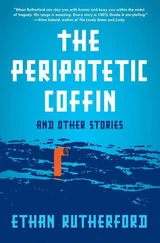Michael Chabon - A Model World And Other Stories
Здесь есть возможность читать онлайн «Michael Chabon - A Model World And Other Stories» — ознакомительный отрывок электронной книги совершенно бесплатно, а после прочтения отрывка купить полную версию. В некоторых случаях можно слушать аудио, скачать через торрент в формате fb2 и присутствует краткое содержание. Год выпуска: 2011, Издательство: Open Road Media, Жанр: Современная проза, на английском языке. Описание произведения, (предисловие) а так же отзывы посетителей доступны на портале библиотеки ЛибКат.
- Название:A Model World And Other Stories
- Автор:
- Издательство:Open Road Media
- Жанр:
- Год:2011
- ISBN:нет данных
- Рейтинг книги:5 / 5. Голосов: 1
-
Избранное:Добавить в избранное
- Отзывы:
-
Ваша оценка:
- 100
- 1
- 2
- 3
- 4
- 5
A Model World And Other Stories: краткое содержание, описание и аннотация
Предлагаем к чтению аннотацию, описание, краткое содержание или предисловие (зависит от того, что написал сам автор книги «A Model World And Other Stories»). Если вы не нашли необходимую информацию о книге — напишите в комментариях, мы постараемся отыскать её.
A Model World And Other Stories — читать онлайн ознакомительный отрывок
Ниже представлен текст книги, разбитый по страницам. Система сохранения места последней прочитанной страницы, позволяет с удобством читать онлайн бесплатно книгу «A Model World And Other Stories», без необходимости каждый раз заново искать на чём Вы остановились. Поставьте закладку, и сможете в любой момент перейти на страницу, на которой закончили чтение.
Интервал:
Закладка:
“I was just trying to get back at you.”
“For what? For making sure I at least got something out of all the time I wasted on you?”
“Take it easy, Suze.”
“And then to lie about how much you got for them? Four thousand dollars!”
“At first my lawyers instructed me to lie about it,” he lied.
“Kravitz! Di Martino! Those sleazy, lizardy, shystery old fat guys! Oh, you pigs!”
Now she was on her feet, and everyone out on the patio had turned with great interest to regard them. He realized, or rather remembered, that he had strayed into dangerous territory here, that Suzette had a passion for making scenes in restaurants. This is how it was, said a voice within Lazar — a gloomy, condemnatory voice — this is what you’ve been missing. He saw the odd angle at which she was holding her cup of coffee, and he hoped against hope that she did not intend to splash his face with espresso. She was one of those women who like to hurl beverages.
“Don’t tell me,” he said, despite himself, his voice coated with the most unctuous sarcasm, “you’re reckoning with me again.”
You could see her consulting with herself about trajectories and wind shear and beverage velocity and other such technical considerations — collecting all the necessary data, and courage — and then she let fly. The cup sailed past Lazar’s head, and he just had time to begin a tolerant, superior smile, and to uncurl partially the middle finger of his right hand, before the cup bounced off the low wall beside him and ricocheted into his face.
Suzette looked startled for a moment, registering this as one registers an ace in tennis or golf, and then laughed the happy laugh of a lucky shot. As the unmerciful people on the patio applauded — oh, but that made Lazar angry — Suzette turned on her heel and, wearing a maddening smile, strode balletically off the patio of the café, out into the middle of Ocean Avenue. Lazar scrambled up from his chair and went after her, cold coffee running in thin fingers down his cheeks. Neither of them bothered to look where they were going; they trusted, in those last couple of seconds before he caught her and kissed her hollow cheek, that they would not be met by some hurtling bus or other accident.
A Model World
MY FRIEND LEVINE HAD only a few months to go on his doctoral dissertation, but when, one Sunday afternoon at Acres or Books, he came upon the little black paperback by Dr. Frank J. Kemp, he decided almost immediately to plagiarize it. It was lying at the bottom of a whiskey crate full of old numbers of the Evergreen Review , which he had been examining intently because he was trying to get a woman named Betty, who liked the poetry of Gregory Corso, to fall in love with him; he was overexuberant and unlucky in love and had just resolved — for example — to grow some beatnik facial hair. The little book was marked on the outside neither front nor back; it was a plain, black square. Levine picked it up only because he had been lonely for a long time and he idly hoped, on the basis of its anonymous cover, that it might contain salacious material. When he opened it to its title page, he received an indelible shock. “Antarctic Models of Induced Nephokinesis,” he read. This was the branch of meteorological engineering he was concerned with in his own researches — in fact, it was the very title he had chosen for his dissertation. Beneath this, Dr. Frank J. Kemp’s name was printed, and then the name Satis House — an academic vanity press in Ann Arbor; Levine had seen its discreet advertisement in the back pages of the Journal of Applied Meteorology . The date of publication was given, to his astonishment, as 1970, almost twenty years before Levine had had even the dimmest notion of the potential power of Antarctic models — a notion that, despite all his ascetic labor over the past year and a half, remained only partly elucidated. It was a radical conception of nephokinesis even today, and in 1970 sufficiently heterodox, no doubt, to have prevented Kemp from publishing his theory by any other means than paying for it himself.
Levine turned the page and saw that Dr. Kemp had, with a precision that struck Levine as tragic and fine, dedicated his work to the beloved memory of his wife, Jean, 21 May 1900–21 May 1969. Levine imagined the sorrowing, hairless scientist, slumped in a chair beside his wife’s hospital bed on a spring day in 1969, his head filled with polar wind. Levine was literally horrified — the hairs on the back of his neck stood erect — at the ignoble fate that had befallen the widower’s theory. It was like the horror he had felt, a few weeks earlier, when he had come across the row of bookshelves in the graduate library where the bound dissertations were kept — a thousand white surnames inscribed on a thousand uncracked blue spines, like the grim face of a monument. It was a horror of death, of the doom that awaited all his efforts, and it was this horror, more than anything else — he really was only a few months from finishing — that determined him to commit the mortal sin of Academe.
I had been browsing among the Drama shelves, looking for a copy of anything by Mehmet Monsour, the fashionable Franco-Egyptian theater guru, who was currently serving as guru-in-residence at the university’s School of Drama. I was at the beginning of an affair with a guru-prone would-be actress named Jewel, and I had come with Levine to Long Beach only in the hope of finding something that would please her; Levine had been irritable, paranoiac, and unwashed for the past several months, and in general, I confess, I tried to avoid him. When I found nothing at all Franco-Egyptian in the Drama section I went to find Levine, who had said something about going for lunch to a local taqueria that served goat. It was the sort of thing one did with Levine, and I was halfway looking forward to it.
“Levine,” I said, “let’s go get those tacos.” He was slouching against a fire extinguisher at the back of the store, completely absorbed in his reading, eyeglasses slipped down his nose, his mouth open. He suffered from a deviated septum and was a chronic mouth breather. His lank red hair covered one eye. He seemed unpleasantly surprised by what he was reading, as if it were a friend’s diary.
“What’s that?” I said.
Levine looked up, his face first blank, then irritated; he had forgotten where he was, and with whom, and why.
“That book,” I said, with a nod. “You look fascinated. You look scared.”
With a sigh Levine stared down at the black book, and bit his lip. “It’s going to be my dissertation,” he said. “Once I retype it.”
“You’re going to plagiarize it?”
“I’m going to rescue it,” he said. “It and myself.”
“Is it on the same subject? There are other books on Antarctic models of induced nephokinesis?”
Embarrassed, afraid that I must disapprove of him, he nodded his head. Then, with the childish look of apology he wore when at his most abject — he always looked this way around Betty — he opened the book to its fly and held it out to me.
“It’s only seventy-five cents,” he said.
He also said that he was too excited to eat anything, particularly goat, and so after he had paid his six bits we walked back to his car. As he pulled onto the freeway, Levine, when he saw that I was not going to censure him, began to expound on his dire plan, which was quite simply to retype Kemp’s book on approved thesis paper, in the approved thesis font, within all the prescribed margins; receive his degree; and move to Santa Fe or Taos several months earlier than he had thought possible, where he would set himself up as a maker of ceramic wind chimes. And no one would ever know of his deception, he felt certain of that. He was the only person in the world, besides the author, to have read the book.
Читать дальшеИнтервал:
Закладка:
Похожие книги на «A Model World And Other Stories»
Представляем Вашему вниманию похожие книги на «A Model World And Other Stories» списком для выбора. Мы отобрали схожую по названию и смыслу литературу в надежде предоставить читателям больше вариантов отыскать новые, интересные, ещё непрочитанные произведения.
Обсуждение, отзывы о книге «A Model World And Other Stories» и просто собственные мнения читателей. Оставьте ваши комментарии, напишите, что Вы думаете о произведении, его смысле или главных героях. Укажите что конкретно понравилось, а что нет, и почему Вы так считаете.












